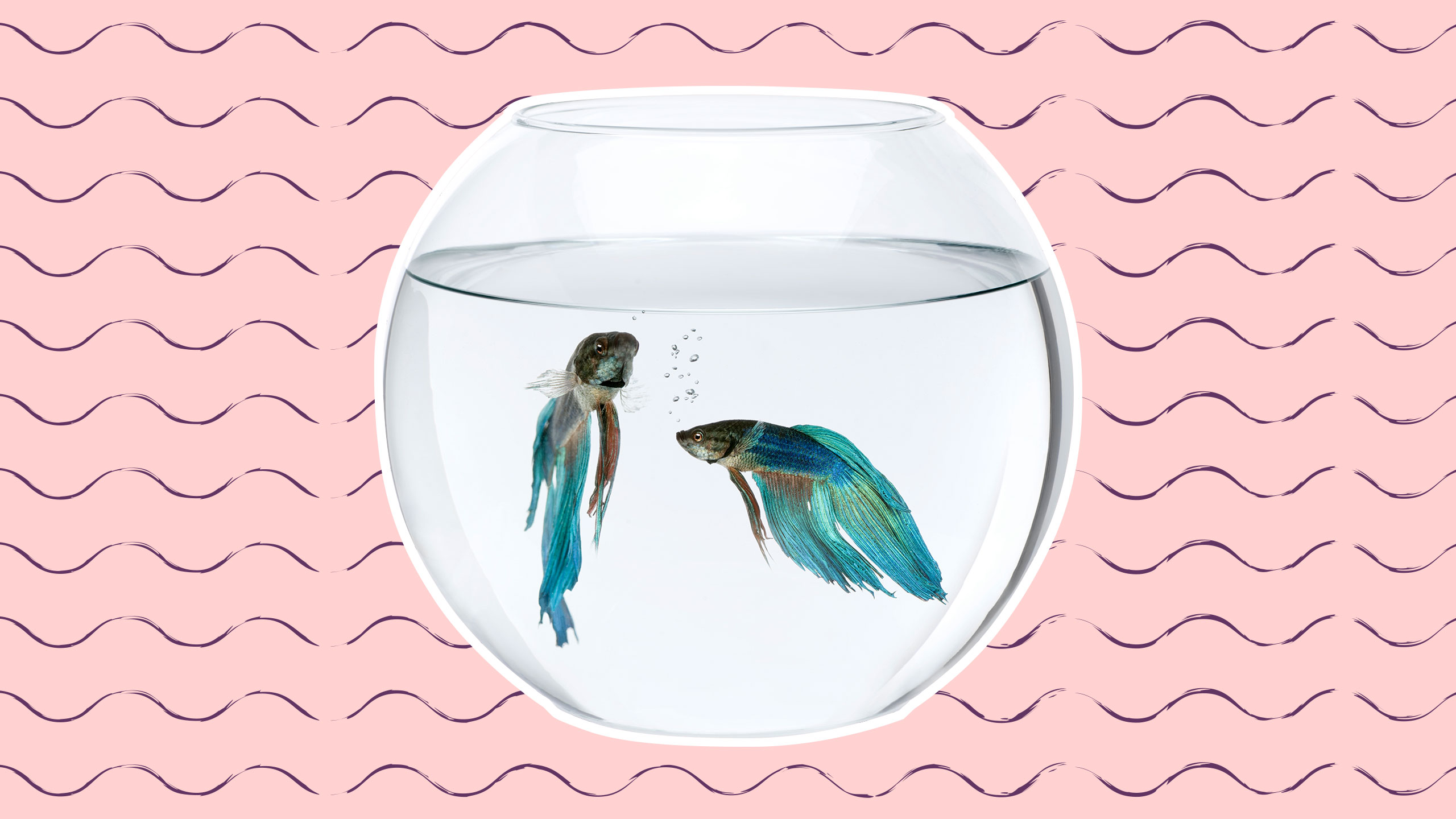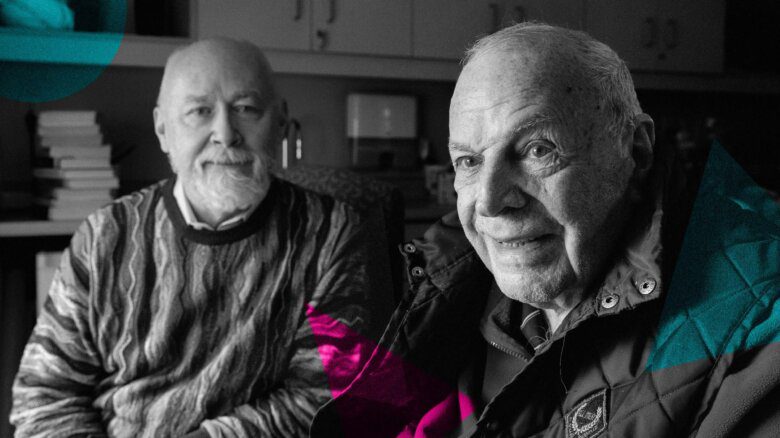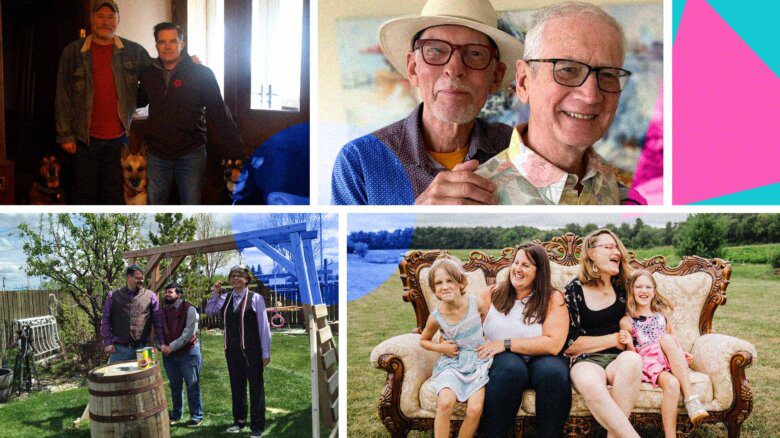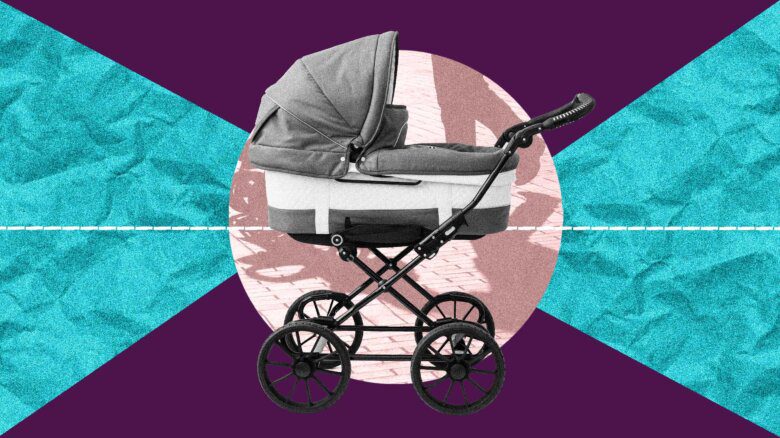“Ask Kai: Advice for the Apocalypse” is a column by Kai Cheng Thom to help you survive and thrive in a challenging world. Have a question? Email askkai@xtramagazine.com.
Dear Kai,
I’m struggling with a situation that involves taking accountability. It all started when my ex-roommate told me that I had caused them harm. It’s a bit complicated but essentially, we both struggle with complex PTSD and one of my symptoms is that I struggle a lot with organization and messiness. I also have ADHD, so that obviously doesn’t help. It’s true that I don’t always take care of my living space in the way that I want to. However, I’ve worked really hard to improve and also to take feedback about this without getting defensive. Meanwhile, messiness is a huge trigger for my ex-roommate. The thing is, I didn’t really know this when I moved in. From what I remember, I was clear when we met that I am not the neatest person, and they said they were okay with it. But my ex-roommate now says that they don’t remember that conversation the same way at all; they claim that I lied and said I was very clean.
My ex-roommate got really triggered one day and yelled at me because I left a bunch of dishes unwashed in the sink for a couple weeks. I totally own that I did this and it wasn’t acceptable. I also forgot to lock the door a few times after going out. They said that I caused them serious psychological harm that left them feeling unsafe for days, which I feel horrible about. My ex-roommate said they wanted me to get out, and honestly, I hate conflict, so I did. I found a new place to live that’s a way better fit. But now my ex-roommate says that they need an accountability process, and their boundaries are that I can’t attend any queer events in our town that they might go to until I have made reparations. They also said that I can’t see or talk to any of our mutual friends until then. But we don’t live in a big city, so that basically means I can’t go to any queer events at all or talk to any queer people our age. My ex-roommate says that I “psychologically abused” them because I started our roommate relationship with a deception that prevented them from making a decision based on informed consent. This just doesn’t feel true to me at all. But when I brought up that I have a different perspective, they said I was gaslighting them.
I don’t know what to do. I’m scared of losing my friends and my community. I just want all of this to go away. I can take responsibility for being a bad roommate, and I want to be accountable. But I don’t want to admit to something that I didn’t do! I also feel like my own neurodiversity has been shamed and erased here. Am I an abuser? What should I do?
Bothered & Bewildered
Dear B&B
I’m so sorry that this has happened to you. Queer conflict can be so very bitter, and it often cuts to the bone. I want you to know that you are not alone in feeling this way—as a queer mediator, I often hear about conflicts very similar to this one. The language of abuse, gaslighting and accountability, while important, also carry an enormous weight and stigma in queer culture. No one wants to be associated with those words because we fear losing our communities—perhaps even our homes and livelihoods—but we are often quick to draw upon those same words when in conflict with others.
Household or roommate conflicts in particular can be a source of emotional strife because they happen by definition in the places where we live; the places that above all others are meant to feel safe and secure. Roommate conflicts also often bring up childhood and family of origin trauma because roommates are close to us in ways that few other people are. Like family, roommates bear witness to some of our most intimate habits and coping strategies, and like family, our roommates’ behaviour can have a profound impact on our day-to-day experience. Throw in the small size of any given queer community and the inevitable clash of personalities and preferences in any given household, and you have the perfect storm for conflict.
I’m telling you all this to try and normalize some of your experience, B&B. Roommate relationships go sour all the time, and life can indeed go on. People have different needs and different temperaments and capitalism doesn’t provide us with the adequate and affordable housing that would allow us to change our living situations easily. While I’m not in a position to make any definitive judgments since I wasn’t there and I’ve only heard your side of the story, based on the details you’ve given, I am inclined to see your situation as a fairly normal roommate conflict that has been severely escalated in tone. Leaving dirty dishes in the sink and forgetting to lock the door are, by themselves, not really behaviours that reach the level of abuse, though they can certainly impact the well-being of the people who live with us.
Abuse is an expanding and complex concept, and its definition varies from person to person. However, a general baseline understanding of interpersonal abuse that I use for myself is the misuse of power to cross someone else’s boundaries. Not cleaning up and forgetting to lock the door might cross your roommate’s boundaries, but I have a hard time seeing it as a misuse of a power, because, as far as I know, it wasn’t deliberate and it seems to me like the power dynamic between you and your roommate is relatively equal. Now, if you were a professional caregiver for your roommate and doing these things, or if you were intentionally not locking the door and leaving dirty dishes around in order to hurt your roommate, that would be a different story. As it is, however, the situation seems more to me like a triggering mismatch of your respective personal needs and preferences.
(For more on the definition of abuse and distinguishing it from other kinds of harm or conflict, I might recommend Sarah Schulman’s Conflict Is Not Abuse. This is a controversial book due to its suggestion that community members should actively question the perspectives of those who have survived harm, and I don’t agree with all of it. However, there are some important pieces of analysis on the themes of conflict, abuse and differentiating the two in Schulman’s work, particularly the first section of the book.)
So with all this said, it might be time for you to do some inner work, B&B, because at the end of the day, only you and your ex-roommate really know what happened between you, and it’s very possible (or even likely) that you have extremely different memories. You will have to decide for yourself: Were you misusing power in some way in that situation? Were you coercing or manipulating your roommate? Or were you just forgetting to do household maintenance in a way that might have been irresponsible and triggering for your roommate, but was ultimately an innocent mistake? How much does your experience of neurodiversity play a role in all of this? Is it possible that you have also been harmed by your roommate’s actions? Your answers to these questions will ultimately determine how much and what kind of accountability you need to take here.
In a normal, non-abusive (Schulman would say “normative”) conflict, we are still capable of causing harm and need to take accountability. For example, you can take accountability for not meeting your roommate’s needs for cleanliness and forgetting to lock the door. This would probably involve something like a sincere apology, an acknowledgement of the impact of your behaviour and openness to hearing more about the effect this had on them. However, this is different from taking accountability for abuse because in a normative conflict, it is more acceptable to explore and share your own needs and the impact the situation has had on you.
This is a key difference between a conflict resolution process for normative conflict and an accountability process for addressing abuse: in conflict resolution, there is definitely room for accountability-taking, but the roles are more fluid and the needs of both participants are centred. In an accountability process that is focused on addressing abuse, it is generally accepted that the person who has committed abuse may have needs but should focus on centring the needs of the person who has experienced the abuse.
“It can be extremely emotionally challenging to stay in the ambiguity of a conflict resolution process.”
Unfortunately, in situations where we are survivors of trauma with limited access to resources—that is to say, most queer and trans people—it can be extremely emotionally challenging to stay in the ambiguity of a conflict resolution process. The possibility that our wounds and pain might not be centred or even fully understood can be quite threatening; and the possibility that we might need to step into the role of being “wrong” is even more threatening.
I think that this is why, in situations of normative conflict, we can rush towards the “abuse” framework instead; it’s clearer and feels safer, at least in the short term. Yet applying the framework of abuse to normative conflict can also prolong the conflict and cause more damage. (Just to make things even more complicated, the same is true in reverse: applying a conflict resolution lens to a situation of abuse can also cause more harm. So accurately “diagnosing” the situation is key.)
On a practical level, B&B, what this comes down to is your own integrity: to get through this situation, you will likely need to become an active participant in pursuing the kind of resolution that you want. While I absolutely relate to “hating conflict” (my gosh, do I ever), sometimes the only way out is through. This means developing your own opinions and setting your own boundaries, even when others might not always understand or agree.
Some essential boundaries to consider are how willing you are to give up friendships and community spaces. As living in a global pandemic has taught us, social connection is a fundamental element of mental health and resilience, so much so that it is arguably a human right. Harm thrives in isolation, and I personally have a general stance against isolation as a form of community accountability. In a normative conflict, it is not acceptable for someone to try to control your access to community to this degree.
Instead of cutting yourself off from all queer contact, B&B, I wonder what else you could do to navigate the situation. Are there some relationships and/or queer spaces that you are willing to give up but not others? Is there the possibility of a compromise where you and your ex-roommate agree to not interact and give each other space at community events? Could the two of you ask your mutual friends to help you to de-escalate and support both of you in feeling safe?
I encourage you not to deal with this alone, B&B. Even in cases where abuse clearly has been committed, the person who has caused harm generally still needs connections, friends and life supports in order to be able to change. I would suggest reaching out to people in your local community that you trust to share your perspective, fears and hopes for the situation. Sometimes having an outside perspective or just someone to listen to us can significantly shift the way we feel about a conflict and shed light on more options. In the past, I’ve created a “conflict pod” for myself of a few people whom I could go to with community conflicts that were impacting me—a group of people that I knew I could count on to support me no matter what. When we are held in a circle of belonging, conflict often becomes far less frightening and less likely to escalate. If you and your ex-roommate both had a support circle of your own, how might things look different?
Taking accountability is not the same thing as giving up your truth, B&B. I encourage you to hold on to your own perspective, your boundaries and your sense of dignity as you move forward—even as you address your ex-roommate with consideration and kindness. You can take their concerns seriously without relinquishing your own sense of reality. You can apologize for the mistakes you know you’ve made without taking responsibility for ones you haven’t. You can be compassionate to yourself while being compassionate to others. Conflict often feels like the end of the world, and the people we’re in conflict with might act as though it is. You don’t need to respond in kind. We can fight with each other and move on. We can even hurt one another and recover. No one has to lose their community over dirty dishes. There’s always another way.
Kai Cheng Thom is no longer a registered or practicing mental health professional. The opinions expressed in this column are not intended or implied to be a substitute for professional medical advice, diagnosis or treatment. All content in this column, including, but not limited to, all text, graphics, videos and images, is for general information purposes only. This column, its author, Xtra (including its parent and affiliated companies, as well as their directors, officers, employees, successors and assigns) and any guest authors are not responsible for the accuracy of the information contained in this column or the outcome of following any information provided directly or indirectly from it.


 Why you can trust Xtra
Why you can trust Xtra


